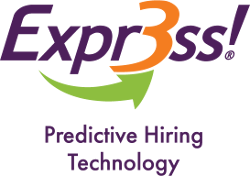
ChatGPT makes it impossible for you to find a real needle in the fake haystack with fake CVs.
As employers are swamped by fake CVs and covering letters as ChatGPT ghostwrites them, isn’t it time to find a better way to determine whether someone is really a good fit for the job?
CV screening has long been the first step in assessing job applicants. It typically involves a glance at the covering letter in order to judge their character, then a 6 second skim of CV skills to determine who makes it through to the next round.
This might have been practical back when jobseekers had to send off a CV in the post, meaning they’d only apply for half a dozen positions. The advent of job boards saw this rise to 35 positions, but with all of today’s technology it’s risen to an amazing 105 applications per jobseeker.
Skimming CVs just doesn’t cut it any more
Employers are swamped with applications for every job they advertise. A 6 second skim of a CV just doesn’t cut it any more.
Related article: https://blog.expr3ss.com/shortlist-job-applicants/
Another problem is that 78 per cent of jobseekers lie on their CV, according to reference-check firm Checkster. Not surprisingly, the most common lies are claims of proficiency in in-demand skills which they don’t actually have.
These days, you can have even less faith in covering letters and CVs, as candidates turn to artificial intelligence to write them. ChatGPT combines vast amounts of online information with natural language processing to create human-like conversational dialogue to help fake CVs.
In other words, ChatGPT can answer complex questions in a natural way that allows it to pass itself off as human – even if those answers can’t always be trusted.
The rise of ChatGPT means a loss of trust in CVs
From a job applicant’s perspective that turn to ChatGPT, it means they forgo an opportunity to convey who they really are in their fake CV.
From an employer’s perspective, the rise of ChatGPT means you can’t trust most covering letters and CVs to be accurate. They’re not even an accurate assessment of the candidate’s English skills and ability to string together a coherent sentence.
The trouble is that ChatGPT is very good at writing what employers want to hear, even if it’s rather formulaic and not all necessarily true.
ChatGPT fake CVs help game ATS systems
Many recruitment teams use Applicant Tracking Systems (ATS) to streamline the hiring process. They sift through CVs in search of the right keywords. It’s called CV parsing, after which they can easily do a talent search.
As you’d expect, ChatGPT tries to game the system by cramming in all the right words and phrases in order to make the cut. In the end, the hiring process is all about one bit of software trying to outsmart another bit of software, rather than anyone actually looking at what the candidate really has to offer. With systems full of fake CVs it makes it impossible to find real needle in the haystack.
On top of this are the privacy concerns that come with applicants that enter all their sensitive personal information into ChatGPT.
Businesses still hire on skills but fire on attitudes
While businesses often hire on skills, they typically fire on attitudes. The key to finding and retaining great people is for you to assess their attitudes upfront. Both real or fake CVs and cover letters also fail to convey critical soft skills such as temperament, attitudes and communication skills – especially when they’re not even written by the applicant.
The solution on how to hire great people is to place less emphasis on covering letters and CVs. Instead, you need to take advantage of new recruitment tools that focus on asking the right set of screening surveys.
Using short surveys instead of relying on CVs, Expr3ss! quickly and cost-effectively pinpoints job applicants with the right skills, attitudes, temperament and cultural fit. Employers tailor the questions to ensure that they unambiguously address the requirements of the role.
Surveys typically only take around six minutes. They can include deal-breaker questions to ensure applicants have all the necessary qualifications and certifications before they progress to an interview. Combined with a video questions you remove the guesswork about who to progress for an interview.
Customised for individual roles, these surveys allow employers to quickly establish whether applicants are the right fit for the job and the team. Of course, if you want real insight into the applicant, you need to choose screening survey and video questions with care.
There are ATS systems that rely on set text-based responses to open-ended questions. Avoid asking open-ended questions, because ChatGPT can actually answer those as well!
Get clearer picture of candidate attributes
Placing more emphasis on short surveys than on CVs is a better way of doing things that benefits everyone. Employers get a clearer picture of candidates, especially when combined with a video survey, while candidates can be sure their real attributes and strengths will shine through – which is what they are desperately trying to do by using ChatGPT.
If you’re still wading through piles of covering letters and CVs in search of the perfect candidate, it’s time to think again and recruit different. You’re fooling yourself nowadays if you think that you’re actually getting any real insight into the applicants, instead you’re just playing a game of cat and mouse with ChatGPT.
